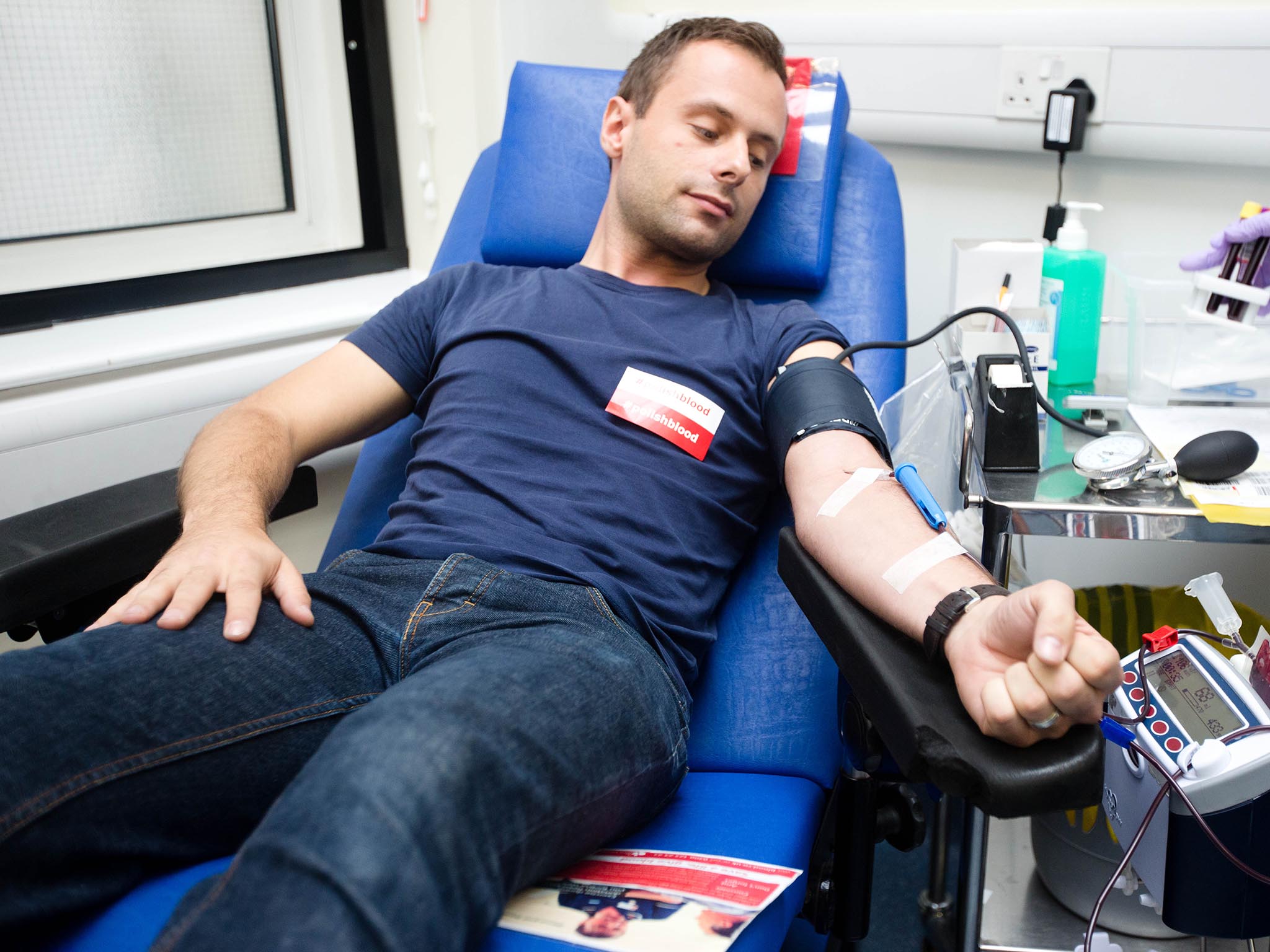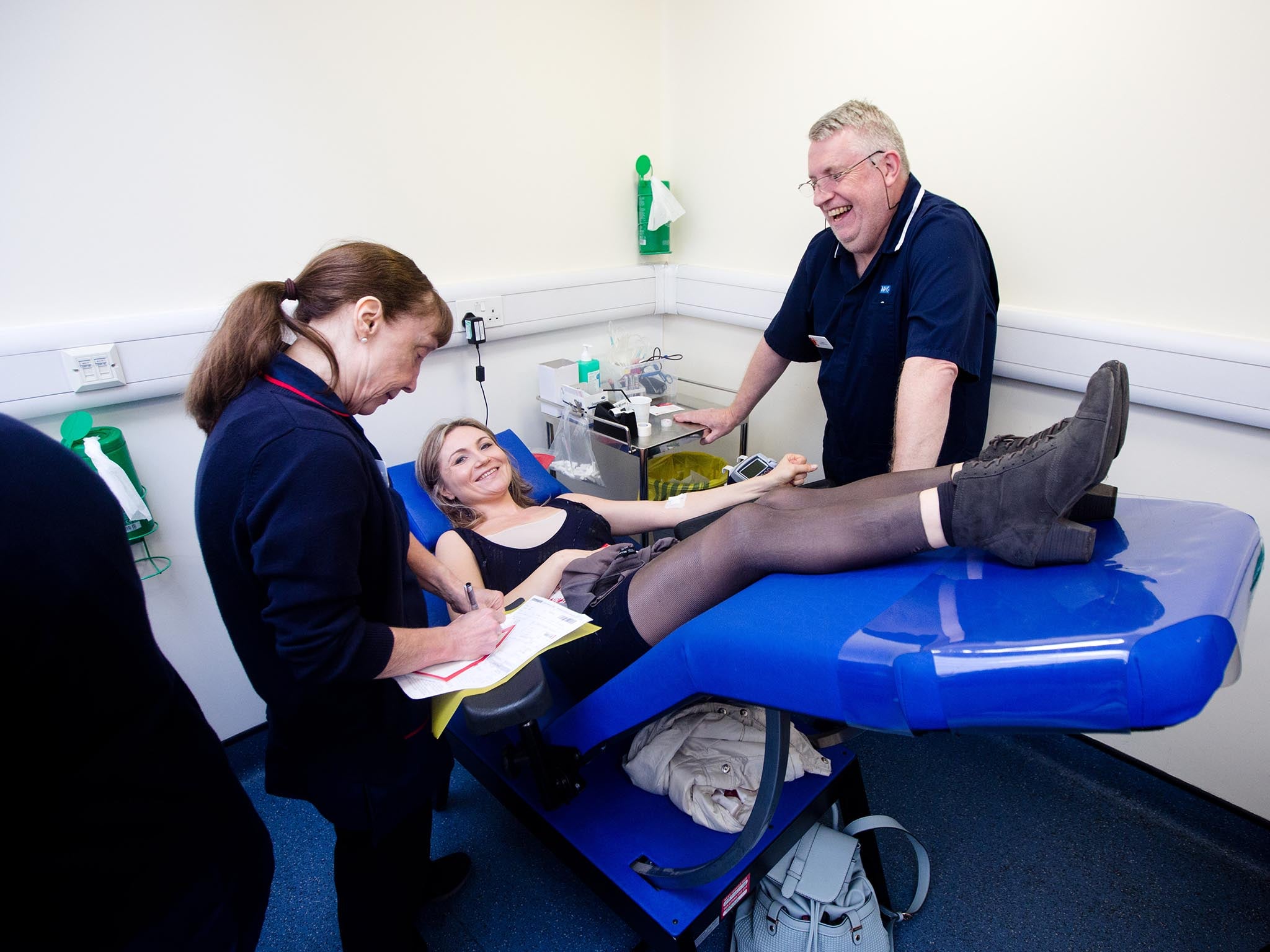Polish migrants strike: Meeting the men and women donating their blood for Britain
The campaign is designed to remind people that Poland had in the past shed blood for the UK and of the positive contribution migrants make in the UK

Your support helps us to tell the story
From reproductive rights to climate change to Big Tech, The Independent is on the ground when the story is developing. Whether it's investigating the financials of Elon Musk's pro-Trump PAC or producing our latest documentary, 'The A Word', which shines a light on the American women fighting for reproductive rights, we know how important it is to parse out the facts from the messaging.
At such a critical moment in US history, we need reporters on the ground. Your donation allows us to keep sending journalists to speak to both sides of the story.
The Independent is trusted by Americans across the entire political spectrum. And unlike many other quality news outlets, we choose not to lock Americans out of our reporting and analysis with paywalls. We believe quality journalism should be available to everyone, paid for by those who can afford it.
Your support makes all the difference.Fear and excitement were on display in equal measure as an unprecedented number of Poles sacrificed their blood for Britain.
Why is this happening? Watch below.
A steady stream of people – many of whom were donating blood for the first time in their lives - turned up at the West End Donor Centre in London as part of a nationwide bid to improve British-Polish relations.
Medical staff were busy dealing with a flow of visitors, while people sat around munching on bananas and biscuits in a waiting room littered with red and white “#polishblood” stickers.
The blood clinic would usually only expect one or two Polish donors a week, but yesterday saw a dramatic rise.
“We don’t normally get that many but we’ve had loads in today. We’ve had roughly 25 appointments made by Polish people, which is very good. I think a lot of them will come back,” said receptionist Beverley Powell.
The clinic is one of more than 3,000 across Britain. If the number who turned up there was anything to go by, many thousands took part in yesterday’s mass donation. Although no official figures are available, a growing number of people have posted selfies online of them having blood taken.
The idea came about as a reaction against an unofficial strike of migrant workers supposed to happen yesterday. In the event, just a few protestors showed up outside Westminster, London, while the notion of giving blood went viral.
Andrzej Rygielski, 52, from Sheerness, Kent, who came up with the idea, said: “Our positive campaign #PolishBlood was created to highlight our contribution to Great Britain.”
Some, like Sylwia Jones, 30, a cancer researcher at University College London, found it tough. She lay white faced, with her fists clenched tight, while her blood was taken. Speaking afterwards, she said: “It’s the first time I have given blood. I was very nervous, but it wasn’t as bad as I thought it would be, I just got a bit light headed at the end.” Mrs Jones added: “I hope this will make British people think differently about Polish people.”

Agnieszka Spytkowska, 30, who works as an administrator at the University of East London, had taken the day off to go to the centre. “We give a lot back to this country and this is a way of showing we’re not as bad as some people make us look,” she said.
And Monika Ober, 30, who works at an estate agents, said: “For me it’s about standing up to the anti-immigrant propaganda that is out there, I think maybe British people will realise we are a benefit to the UK.”
Grzegorz Dynus, 45, who works for a tool company, popped in on his way to work. “Most of the people who moan about Polish people don’t know anything about us, this is a way of building bridges with others,” he said.
Another donor, Michael Kowalski, a 32-year-old project manager, said: “I wasn’t nervous. It hurt a little but nothing I can’t handle. I’ll definitely give blood again.”
Regulars at the centre praised the Poles for their efforts. Wendy Carter, a business consultant in her 50s, said: “It’s a brilliant idea, people should follow their example.”
As for the failed strike, the tiny protest outside Westminster yesterday – which attracted a handful of protestors - was attacked by Tadeusz Stenzel, chair of the Federation of Poles: “This irresponsible protest did not attract any attention of the hard-working community of Poles living in the United Kingdom.”
Join our commenting forum
Join thought-provoking conversations, follow other Independent readers and see their replies
Comments